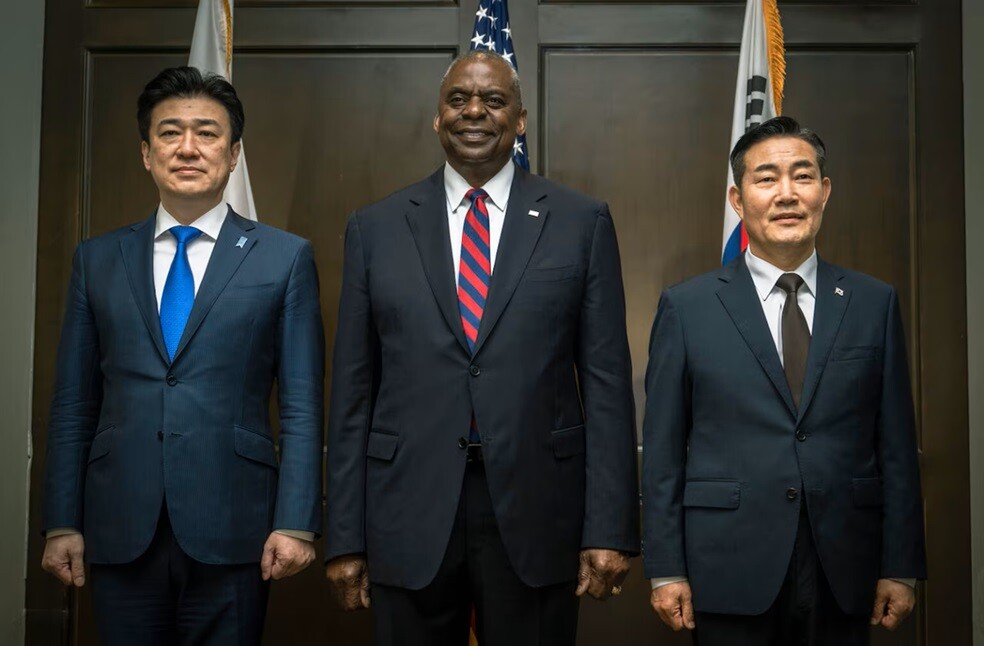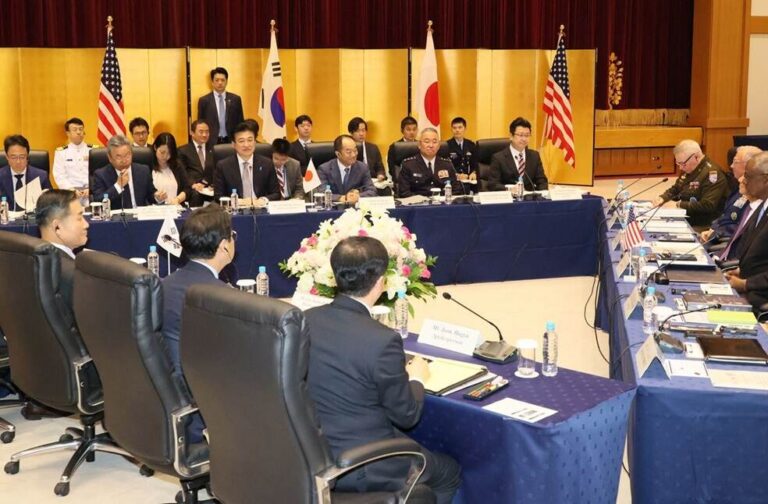Tokyo: The defence chiefs from the United States, South Korea, and Japan have committed to bolstering their cooperation to counter ‘nuclear and missile threats’ from North Korea. The historic meeting, the first of its kind in 15 years, underscores the countries’ efforts to enhance coordination in an increasingly tense region.
Trilateral meeting historical context
The trilateral meeting took place nearly a year after a landmark summit at Camp David hosted by US President Joe Biden. The summit aimed to strengthen ties between the US and its key Asian allies in response to North Korean provocations and Chinese aggression.
In a joint statement, US Secretary of Defence Lloyd Austin, Japan’s Minister of Defence Minoru Kihara, and South Korea’s Shin Won-sik reaffirmed their commitment to enhancing trilateral security cooperation.
The countries emphasised the need to deter nuclear and missile threats from North Korea and expressed concern over the growing military and economic cooperation between Moscow and Pyongyang. The concern follows numerous accusations that North Korea has been supplying Russia with weaponry for its war in Ukraine, and the two nations recently signed a new Defence Pact.

Strengthening regional security
The enhanced trilateral coordination represents a significant shift in regional dynamics. Both South Korea and Japan, long-standing US allies, are working to address shared security threats more effectively. Following last year’s summit, Japanese Prime Minister Fumio Kishida announced the establishment of annual recurring summits among the highest officials from the three nations, including ministers of Foreign Affairs, Defence, and National Security Advisers.
China’s stance
China has criticised the trilateral summit, stating that the Asia-Pacific region should not become a ‘wrestling ground for geopolitical competition.’ While the joint statement did not explicitly mention China, the Defence Chiefs reiterated their opposition to ‘any unilateral attempts to change the status quo in the waters of the Indo-Pacific.’
China’s extended presence near Japanese-controlled islands in the East China Sea and its military intimidation of Taiwan were also points of concern.
The Defence Chiefs formalised a trilateral agreement that reaffirms the ‘unwavering nature of the new era of trilateral cooperation.’ The agreement aims to institutionalize security cooperation, including senior-level policy consultations, information sharing, trilateral exercises, and defence exchange cooperation.



